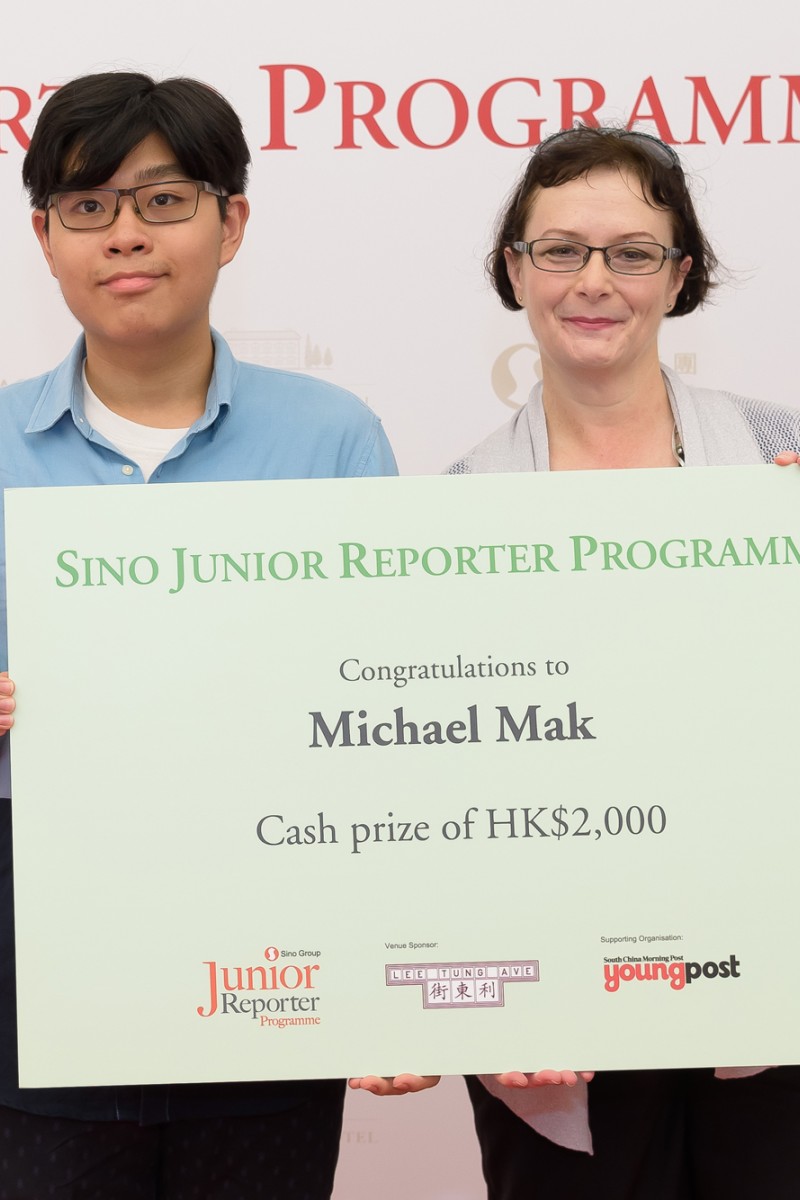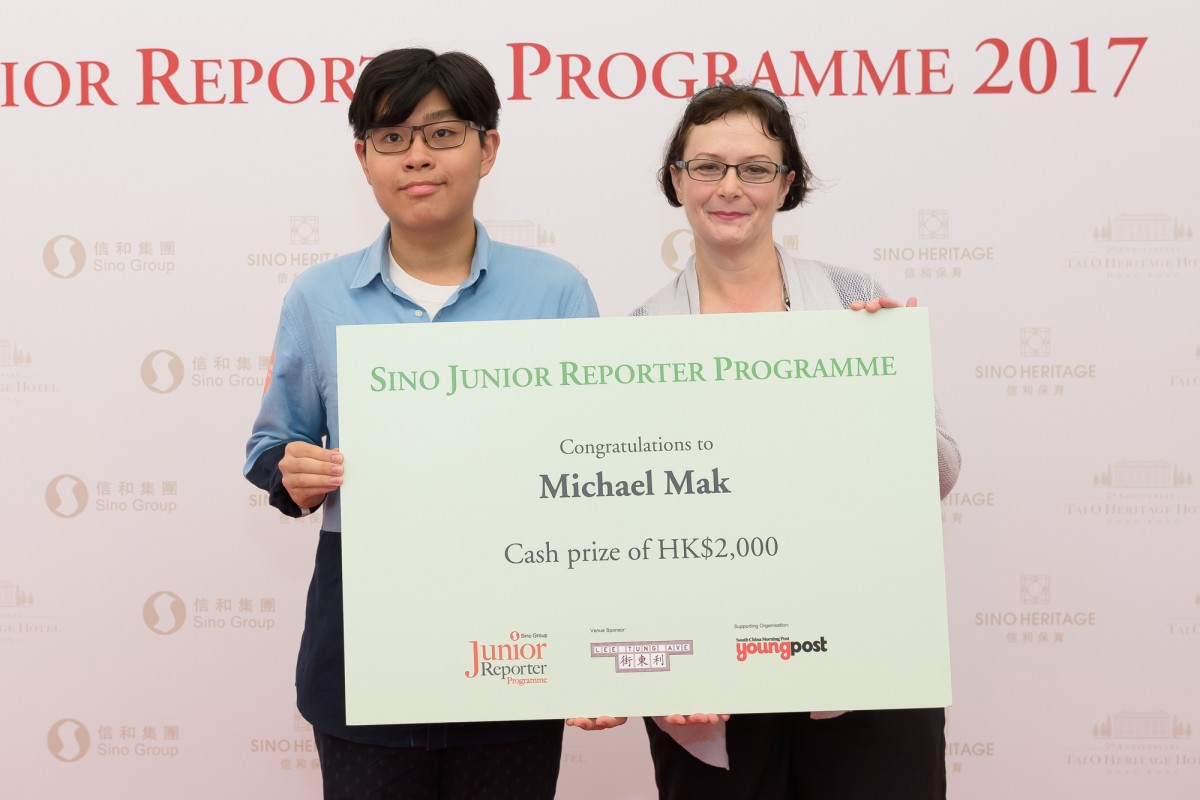
1st runner-up: how preserving Hong Kong’s culinary heritage gives our local chefs an edge
By attending the annual Junior Reporter Programme co-organised by South China Morning Post and Sino Group, students honed their reporting skills and experienced a piece of Hong Kong culture
 1st runner up Michael Mak Chi-chiu of Sheng Kung Hui Tang Shiu Kin Secondary School receives his prize from the Editor of Young Post, Ms Susan Ramsay.
1st runner up Michael Mak Chi-chiu of Sheng Kung Hui Tang Shiu Kin Secondary School receives his prize from the Editor of Young Post, Ms Susan Ramsay.By attending the annual Junior Reporter Programme co-organised by South China Morning Post and Sino Group, a group of students embarked on a cultural tour of Tai O on the 8th of July and visited the Tai O Heritage Hotel.
55 students from high school and university were shortlisted in an earlier contest under the theme: Hong Kong’s culinary heritage.
The group set off to the boutique hotel not only to hone their reporting skills as “rookie journalists”, but most importantly, to experience a piece of the puzzle that is Hong Kong’s food culture.
Tai O Heritage Hotel, once the Old Tai O Police Station, was given the Award of Merit by UNESCO for its revitalisation.
After a session on the basics of how to write like a journalist, the students had the chance to conduct an interview with the chef and the senior manager of the hotel, who shared their personal views regarding Hong Kong’s food heritage.
Raymond Ting, Executive Sous Chef of the hotel, has been cooking for more than 30 years. To him, Hongkongers are open-minded and willing to accept various cultures regardless of their differences.
“Local chefs are more adaptable to changes than their foreign counterparts, which is surely our competitive edge over them,” he said.
Ting believes that the traditional local culinary heritage will not be replaced by foreign food culture because we as are good at learning from other cultures and creating something of our own.
“Hong Kong people should be proud of our own culture, we are able to absorb the western culture and turn it into our own,” said Ting.
“There are many opportunities for Hongkongers to be exposed to different kinds of foreign cultures and innovative ideas, and that is a good thing.”
Karl Law, Manager of Tai O Heritage Hotel added, “when visitors come here, they always want to order wonton noodles, which is one of our favourite local cuisines. That tells us that it is impossible for our local culture to fade away.”
After the interview, students had the privilege to sample some of the signature dishes in the hotel - they were served a crispy burger, with pork chops marinated in shrimp paste, followed by a mouthwatering plate of shrimp-pasted chicken wings together with a beautiful signature drink named the “Mangrove Special”, mixed with colours representing Tai O’s splendid sunset.
Ting explained they tried to make use of local ingredients to blend in with their Western cuisine to create unique recipes. Tai O’s trademark shrimp paste in their Portuguese pork chop bun is a classic example. “We try our best to blend the paste depending on the kind of food, to enhance the flavour in the right way, providing a nice twist to the cuisine,” he said.
“The more overseas cultures we have in Hong Kong, the more we acquire their knowledge; the more the merrier,” he said.
After the hearty meal, the cultural tour began with a visit to the different parts of Tai O Heritage Hotel, then a stroll around the ancient village of Tai O.
When asked about the perspective of the younger generation towards Hong Kong’s culinary heritage and its future, Law was optimistic about their curiosity.
“Whenever we discuss the origins of our local food culture with teenagers, they show great interest. I feel that our young people actually want to learn more about it,” he said.
Hong Kong’s culinary heritage is part of our collective memory. It is an invaluable treasure cherished by many, and should be passed on from generation to generation.
